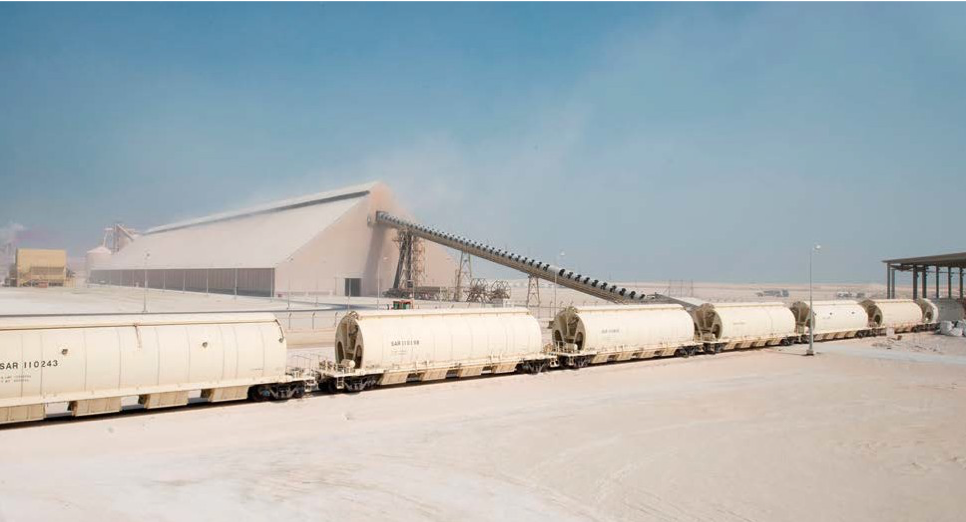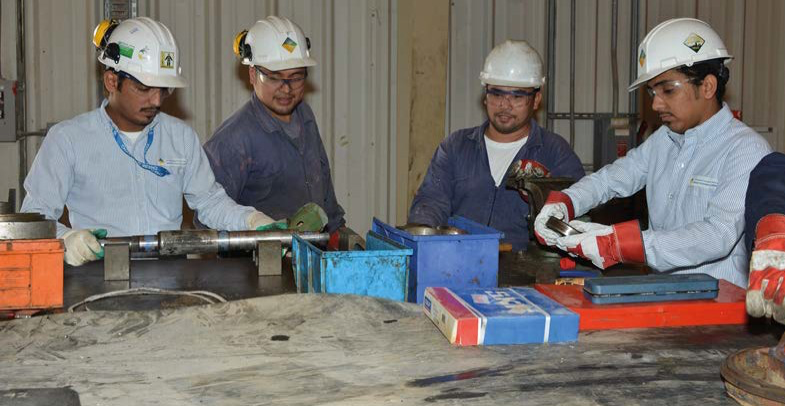
Fertilising the Economy: Diversifying Saudi Arabia’s Export Sector
The Kingdom of Saudi Arabia’s rock phosphate deposits are estimated at 960 million tonnes – the 11th largest reserves in the world. In 2009, the Islamic Development Bank (IsDB), set about developing these natural resources – and in doing so, diversifyed the country’s export economy – through the Ma’aden Phosphate Fertilizer Complex project. The Saudi Arabian Mining Company, Ma’aden, was given the responsibility to extract and process the phosphate. It successfully established a phosphate fertilizer industry, simultaneously providing a national income stream outside of the oil sector and establishing new centres of economic activity in Al-Jalamid and Arar in the north of the country, and Ras Al-Khair on the east coast. Saudi phosphate fertilizers are now exported all over the world, supporting both the national economy and global food production.
A New Industry
The new phosphate industry established under the project incorporates a fully integrated chain of production. The project established the mine and ore-processing plant at Al-Jalamid. The phosphate deposits mined here are then transported to industrial plants in Ras Al-Khair Industrial City for processing into intermediate products (sulphuric and phosphoric acids) and final products (ammonia and diammonium phosphate [DAP] fertilizer). These finished products are then delivered onto ships in Ras Al-Khair port for export, particularly the major markets in South Asia and China. MPC oversees all aspects of the production chain.
The project also established ancillary plants to provide power and water for each element of the production chain. Meanwhile, the country’s railway, road and port infrastructures received major upgrades to support this new industry.
Significant progress on major development goals
One of the government’s main aims for this project was to diversify Saudi Arabia’s economy and reduce the dependence on oil, which provides almost 90 per cent of budget revenue and export earnings, and 42 per cent of gross domestic product.3 By establishing a fully integrated phosphate industry, from mining to the export of finished products, it has taken a significant step towards achieving this goal.
The second major aim was to create employment and economic opportunities outside the country’s main economic centres, and thus tackle the concentration of jobs in just a few places and the high unemployment rates among Saudi youth. For example, Arar, the capital of Northern Borders Region, had little industrial activity and few employment opportunities in the mid-2000s.
This aim has also been realized: MPC now employs about 1,500 people. By locating the ore-processing plant close to the mine in Al-Jalamid, the project not only created jobs, but also encouraged the emergence of small and medium-sized enterprises to support the new industry. The plants in Ras Al-Khair have also provided employment and business opportunities for experts around the country. And the MPC site in Ras Al-Khair, which was adesert in 2007, is now part of an emerging industrial city, with several plants and accommodation for workers.
The new phosphate industry has also stimulated other economic projects, specifically major upgrades to the national railway and Ras Al-Khair port

Success breeds success
The Ma’aden Phosphate Fertilizer Complex project helped established a whole new industry in Saudi Arabia, boosting the national economy and achieving real impact in Arar and Ras Al-Khair in particular. The project has directly generated jobs and provided an environment for the growth of other businesses that support its core work and workforce.
The success of the project has led to another phosphate- based public–private partnership (PPP), the Ma’aden Wa’ad Al-Shamal Phosphate Company, which builds on the lessons learnt by MPC. The project is scheduled for completion in 2018.
IsDB is looking to scale up the size and number of its PPP projects in environments where significant economic and social development can be achieved. The MPC project in Saudi Arabia provides a blueprint for others to follow.
